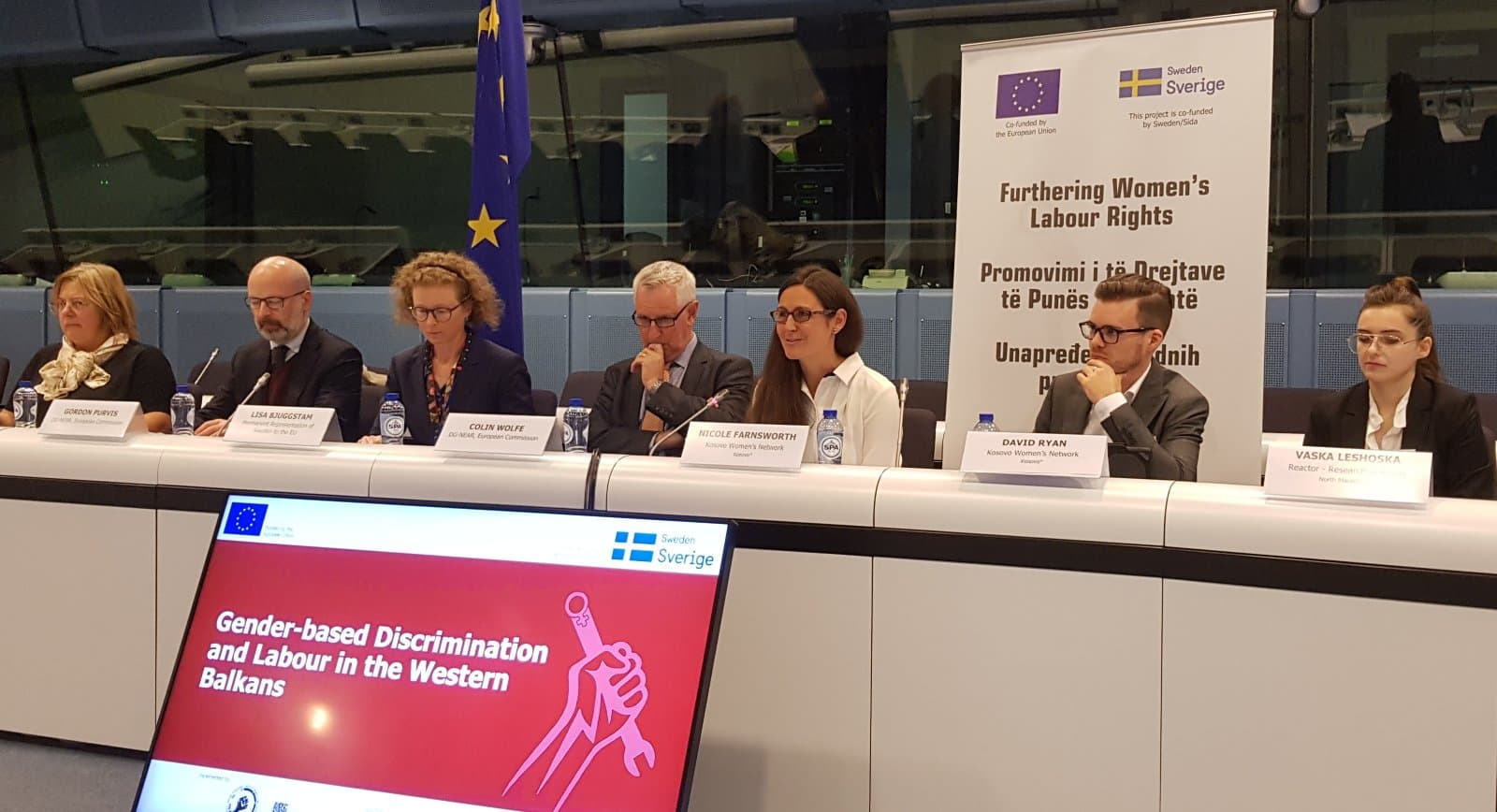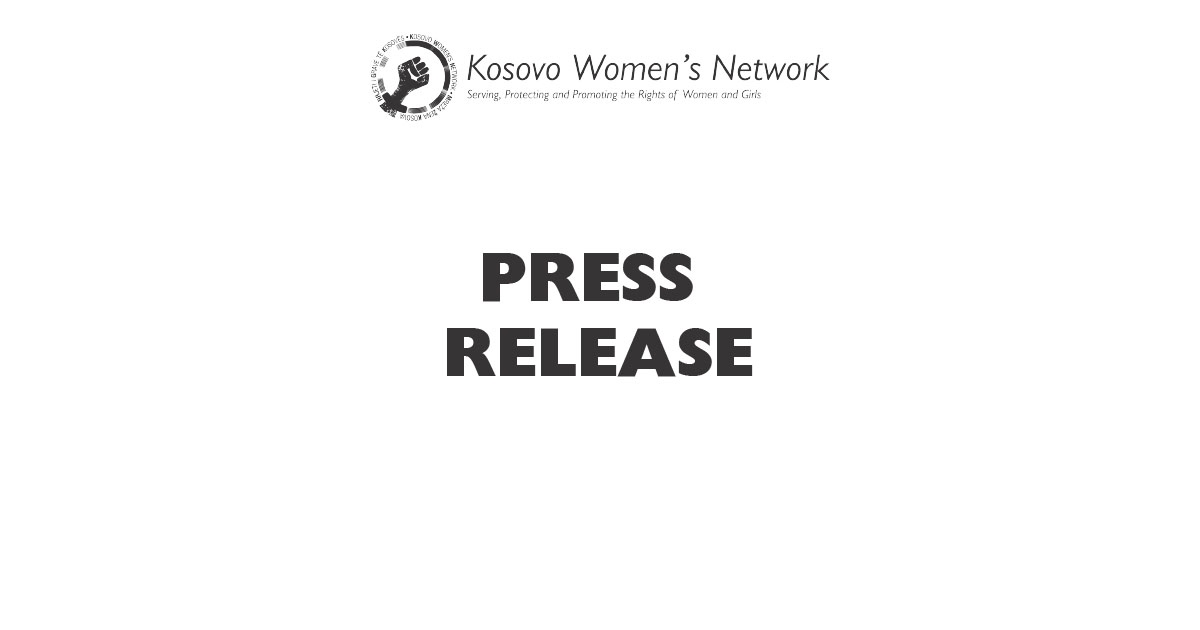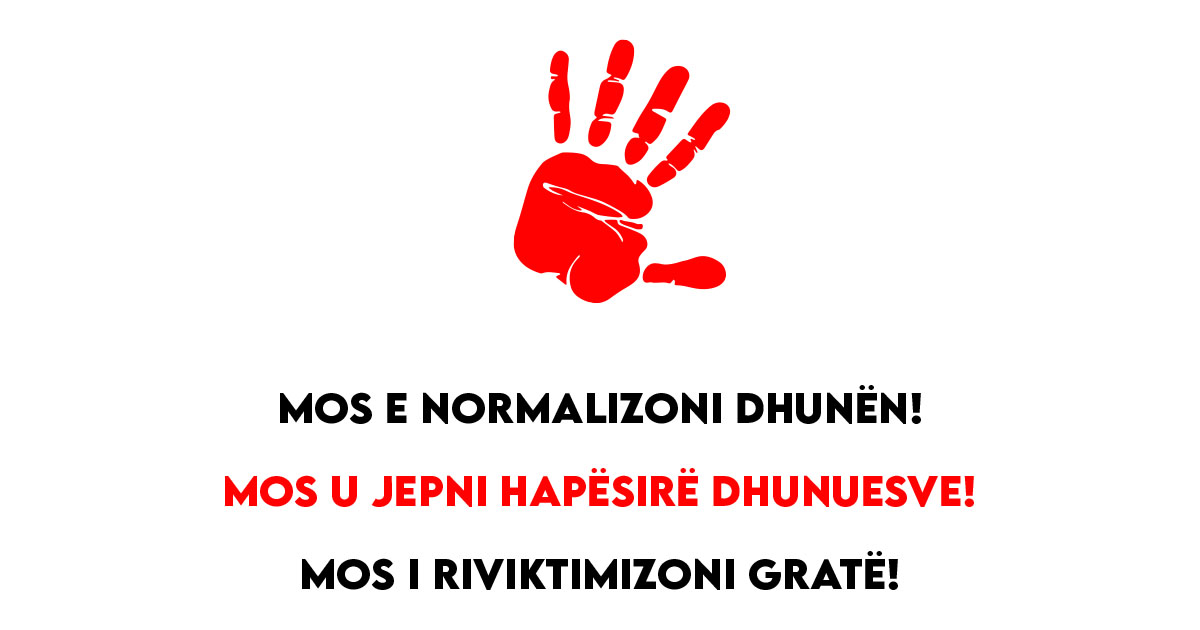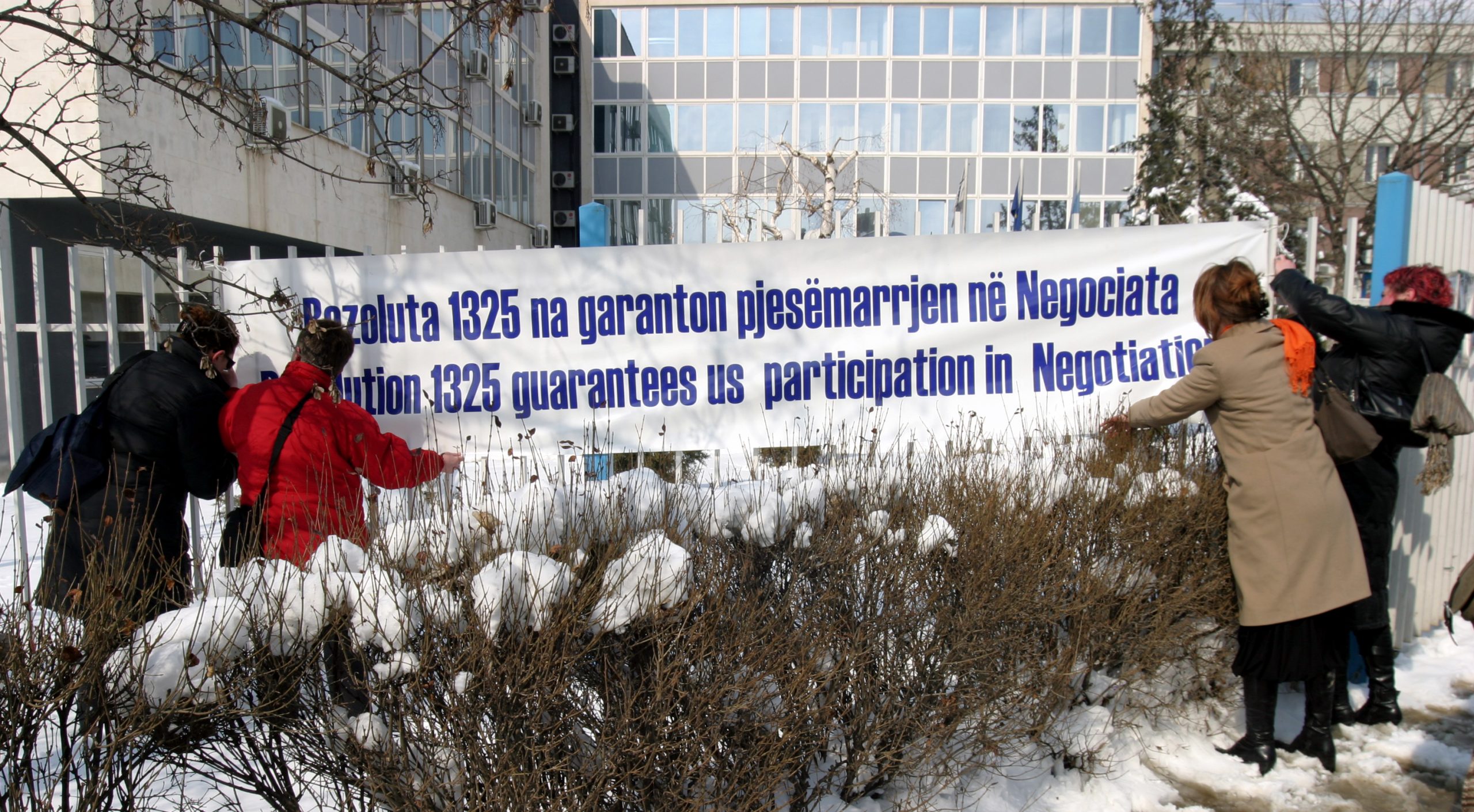Today, a new research report by a coalition of women’s rights organisations from the Western Balkans titled ‘Gender-based Discrimination and Labour in the Western Balkans’ was presented at an event in Brussels. Supported by the EU and Swedish International Development Cooperation, the study is part of a broader regional initiative aimed at addressing and tackling gender-based discrimination and improving women’s rights related to labour.
Some key findings of the report presented at the launch-event include:
- Gender-based discrimination is widespread, particularly regarding hiring, promotion, maternity leave and sexual harassment.
- While relevant international instruments have been ratified, the legal frameworks pertaining to discrimination are fragmented and often inconsistent across the region. Different standards of protection, procedures and sanctions applicable under various laws contribute to the confusion.
- Few institutions from the Western Balkans responsible for addressing labour-related gender-based discrimination maintain clear data about its prevalence.
- While relevant institutions seem generally knowledgeable about their responsibilities to address gender-based discrimination at work, few cases have been reported so institutions lack practical experience in treating such cases.
- People generally lack awareness on where gender-based discrimination can be reported.
Gender-based discrimination is widespread, particularly regarding hiring, promotion, maternity leave and sexual harassment.
While relevant international instruments have been ratified, the legal frameworks pertaining to discrimination are fragmented and often inconsistent across the region. Different standards of protection, procedures and sanctions applicable under various laws contribute to the confusion.
Few institutions from the Western Balkans responsible for addressing labour-related gender-based discrimination maintain clear data about its prevalence.
While relevant institutions seem generally knowledgeable about their responsibilities to address gender-based discrimination at work, few cases have been reported so institutions lack practical experience in treating such cases.
People generally lack awareness on where gender-based discrimination can be reported.
During the event, Vaska Leshoska, Researcher from Reactor-Research in Action, also presented real, harrowing stories from women in the region, including a woman from Montenegro, who said:
“I was supposed to replace a girl who was on maternity leave. They planned to fire her after. They told me that I was not allowed to get pregnant for two years.”
In addition, the research report entails a number of recommendations for institutions from the Western Balkans as well as for the EU on a variety of topics, including the adoption and implementation of reforms on gender-based discrimination, improved monitoring approaches, and continued support to women right’s organisations.
Genoveva Ruiz Calavera, Director for the Western Balkans at the European Commission underlined: “There is an urgent need for more action to tackle gender-based discrimination across the region and at all levels. The EU is working with governments, private sector representatives and civil society towards the necessary reforms and actions in this area, and will continue providing other support to foster gender equality and women’s empowerment in the region. Over the past years, our assistance has already delivered concrete results in important areas, such as the fight against gender-based violence and support to women’s rights organizations.”
Background:
The report was researched and written by a coalition of women’s rights organisations from the Western Balkans, including the Kosovo Women’s Network (KWN), Reactor – Research in Action from North Macedonia, Gender Alliance for Development Centre from Albania, Helsinki Citizens’ Assembly Banja Luka from Bosnia and Herzegovina, Women’s Rights Centre from Montenegro, and the Kvinna till Kvinna Foundation from Sweden through its office in Serbia.
It includes a comparative analysis of relevant legal frameworks in the Western Balkans, findings on the prevalence and nature of labour-related gender-based discrimination and how institutions have treated such cases, as well as targeted recommendations.
Speakers at the launch event included: Colin Wolfe, Head of Unit for Western Balkans Regional Cooperation and Programmes, European Commission; Lisa Bjuggstam, Minister Counsellor and Deputy Head of Department for Foreign and Security Policy, Permanent Representation of Sweden to the EU; Gordon Purvis, Policy Officer – European Integration Negotiator European Commission, Directorate-General for Neighbourhood and Enlargement Negotiations, Western Balkans, Montenegro; Christiane Westphal, Policy Officer – International Issues Unit, European Commission Directorate-General for Employment, Social Affairs and Inclusion; Nicole Farnsworth, Program Director, Lead Researcher, KWN; David Ryan, Co-author, KWN; and Vaska Leshoska, Researcher, Reactor-Research in Action.
The full report is available at: https://womensnetwork.org/publications/gender-based-discrimination-and-labour-in-the-western-balkans/
For further information, please contact: Nicole Farnsworth, KWN Program Director and Lead Researcher at Nicole@womensnetwork.org.





